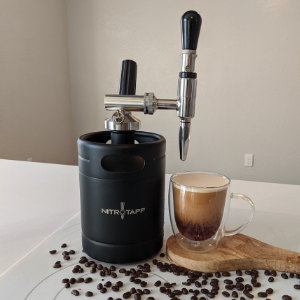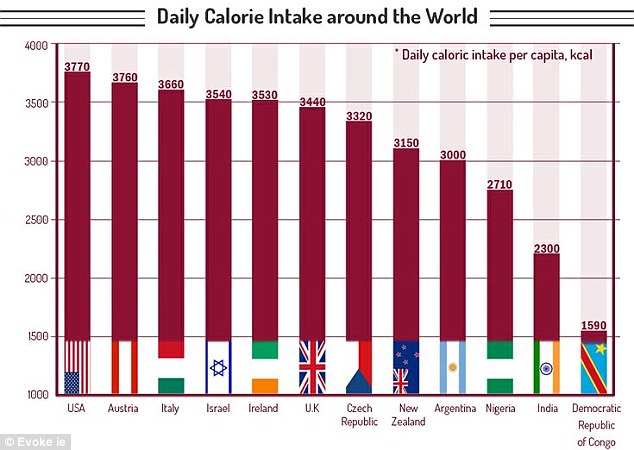
There are many people who worry about weight gain after having gastric sleeve. Many people have this problem and have been unable to lose the weight again despite a variety of methods. Fortunately, the reversal of weight gain is possible. Read on to learn how to deal with your weight gain after gastric sleeve surgery.
After gastric bypass surgery, laparoscopic sleeves gastrectomy can help you gain weight.
You are not the only one who experiences weight gain after gastric sleeve. About one third of gastric sleeve surgery patients experience weight gain two to five years after surgery. A variety of factors can play a role in weight recovery after gastric surgery. Some people gain back weight due to stomach stretching. Other patients experience chronic acid reflux after surgery and cannot control this with medication or dietary changes.
For patients who wish to lose more weight, revision gastric sleeves surgery may be necessary. Revisions are often necessary when the original surgery did not work. A revision may be necessary if the patient doesn't lose weight within the specified time. Another reason is that the surgeon didn't remove enough stomach after the initial surgery.

After gastric bypass surgery, it is important to keep your fitness in mind.
Walking, light running, and other activities to improve your fitness can all be used post-operatively. The surgeon will help you decide what exercises to do after gastric surgery. Light jogging, bodyweight movements and stretching are all low-impact ways to improve your fitness. To create a workout routine that suits your body, work with a personal trainer.
Once you have had gastric surgery, your new diet is just the beginning. Your mental health is also dependent on a regular exercise program. This will help you feel better, boost your mood, reduce stress and anxiety, as well as lose weight. Keep exercising and increase your intensity gradually.
Managing weight gain after gastric sleeve surgery
Gastric sling surgery can be used to reduce weight gain. Consult your doctor to learn more about the options. There are also support groups in your area. You may find other patients in these groups who have gone through the same procedure. These groups can provide advice and tips regarding your diet and exercise habits. It's also possible to lose weight without surgery.
Your surgeon will explain the benefits and risks of gastric sleeve. However, you should make an effort to lose weight as soon as possible. Some foods increase your risk of adverse side effects. You should avoid these foods and start an exercise program. Even if your weight does not immediately drop, you can still exercise regularly to lose weight and counter the negative effects associated with obesity. Even though it can take time, patients with gastric sleeves can attain their desired weight.

Gastric Sleeve Surgery can cause weight gain.
Many complications can occur for people who gain weight following gastric sleeve operation. The pouch in your stomach is so small that it can only hold roughly half a glass of food the first day. Over time, however, the pouch expands and can hold more food. Consequently, when you regain weight, you risk losing the weight you lost in the first place. Overeating can also prevent weight loss. To minimize the risk of complications, you should follow your doctor's post-operative instructions carefully.
You should not gain weight over several months after your gastric sleeve procedure. After the surgery, some weight can be regained. The surgery can't be reversed but will minimize your chance of weight loss. Regular exercise and healthy eating can prevent weight gain. Reduce the amount of food you eat to lose weight.
FAQ
Can I eat fruits when I am intermittently fasting?
Fruits are great for your health. They are rich in vitamins, minerals and fiber. They also contain sugar, which can lead to blood glucose levels rising. This can lead both to insulin resistance and weight loss. When you are trying to lose weight on an IF diet, make sure you eat low glycemic fruit such as apples, pears or berries.
Why should you lose weight before reaching 40?
Over 40s should be concerned about their health and fitness. It is crucial to find ways that you can stay fit throughout your entire life. Regular exercise, healthy eating, moderate alcohol consumption, and quitting smoking are all important.
It is also important that you understand that as we age, our bodies undergo changes. Our bones start to weaken, and our muscles start to shrink. By taking care of our bodies, we can slow the aging process.
Being healthy and active as we age has many benefits. These are some of the benefits:
-
Better sleep
-
Better mood
-
Increased energy levels
-
Lower risk of developing cancer
-
A longer life
-
More independence
-
Better sex
-
Greater memory
-
Improved concentration
-
Increased circulation
-
Stronger immune system
-
Fewer aches, pains
Is there a difference between intermittent fasting, calorie restriction, and intermittent fasting?
Calorie restriction means eating less calories than your body requires. Intermittent fasting is different because it doesn't involve restricting calories. Rather, it focuses on eating fewer calories throughout the day.
Intermittent fasting is more effective because it allows you to enjoy foods you love without feeling guilty.
Both methods have their merits and weaknesses. It is up to you to decide which method you prefer.
What foods can I eat to lose weight quicker?
It is possible to lose weight faster by eating fewer calories. This can be done in two ways:
-
Reduce the number of calories you take in daily.
-
Physical activity can help you to burn more calories.
Reducing the number of calories you eat is easier said than done. Everywhere you turn, there are many calorie-dense fast foods. Here's a list that will help you lose weight.
-
Beans contain high levels of fiber and protein. They have very little fat making them a great option for dieters trying to reduce their caloric intake.
-
Oatmeal is low on calories but high in nutrients, such as magnesium or potassium. Oatmeal also contains less sugar that other cereals.
-
Eggs contain high levels of protein and cholesterol. Eggs can be eaten once or twice per week to increase metabolism, which will help you burn more calories during the day.
-
Whole grain bread has been shown to reduce hunger pangs so that you may feel fuller longer.
-
Dark chocolate is loaded with antioxidants and flavonoids, substances that have been linked to lower blood pressure and improved heart health.
-
Cottage cheese is high in calcium, which helps to build strong bones. It also provides a good source of vitamin D, which boosts immunity.
-
Salmon is packed with omega-3 fatty acids, which promote brain development and improve cardiovascular function.
-
Green tea is chock-full of catechins, compounds that fight cancer and increase metabolism.
-
Broccoli is an excellent source of folic acids, which helps to lower homocysteine levels. A higher risk of developing heart disease and stroke is associated with high homocysteine levels.
-
Yogurt is a great way to add probiotics into your diet without loading up on added sugars. Probiotics are vital for good digestive health.
-
Berries can be a healthy snack choice that tastes great and is very nutritious. There are many great sources of vitamins, minerals in blueberries, strawberries, blackberries and raspberries.
-
Avocados are rich in healthy fats. A half avocado has only 80 calories and offers plenty of filling fiber and potassium.
-
Nuts are a tasty snack option that also happens to be a great source of protein. You can choose from cashews or hazelnuts, almonds, walnuts or pecans.
-
Sweet potatoes are another starchy crop that is rich in beta carotene. This makes your skin glow. Because of their higher beta carotene levels, orange sweet potatoes are particularly good.
Statistics
- One study in 9 active men found that HIIT burned 25–30% more calories per minute than other types of exercises, including weight training, cycling, and running on a treadmill (18Trusted Source (healthline.com)
- One 6-month study showed that simply doing 11 minutes of strength-based exercises 3 times per week resulted in a 7.4% increase in metabolic rate, on average. (healthline.com)
- Among women, the increase in metabolic rate was nearly 4%, or 50 more calories per day (14Trusted Source (healthline.com)
- It's estimated that half of all American adults attempt to lose weight every year (1Trusted (healthline.com)
External Links
How To
How to Intermittent Fasting
Intermittent fasting, a type of dieting that allows you to only eat one time per week, generally Monday through Friday. This is a way to cut down on calories while still getting enough nutrition. This helps you lose fat more quickly than if it were your normal meals for the entire week.
The most common form of IF involves restricting calories only on certain days of the week. This means that you would skip breakfast every morning and then consume whatever food you want during the rest of the day. You could also choose three small meals instead of two large meals per day.
Many forms of intermittent fasting are available, such as alternate day fasting (5/2 fasts), 8/4 fasts and 16/8 fasts. There are pros and con's to every type of intermittent fasting. Alternate day fasting, which doesn't require you to change your lifestyle, is the best way to get started. Some people may find it difficult to adhere to such a strict schedule, so they might try other methods.
If you want to try intermittent fasting, I suggest starting with alternate-day fasting. This will allow you to gradually transition into more extreme fasting routines without completely changing your lifestyle.